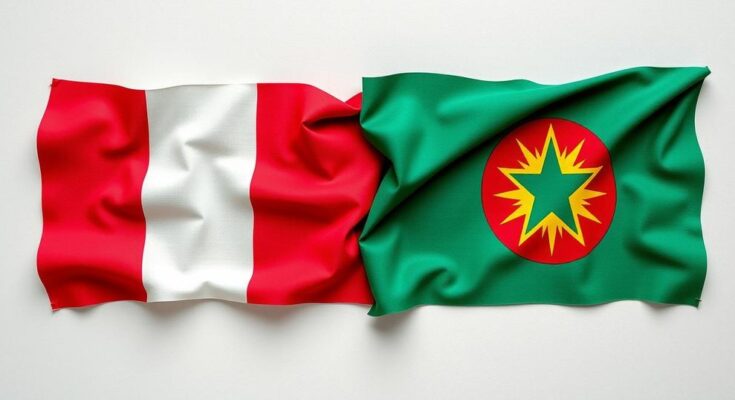Somalia and Ethiopia have agreed to restore diplomatic ties after a year-long rift due to Ethiopia’s controversial memorandum with Somaliland. This agreement follows a visit by Somalia’s President to Ethiopia and aims to enhance bilateral relations and cooperation against common threats like al-Shabaab. The diplomatic breakthrough was facilitated by international mediation efforts, emphasizing the importance of dialogue in resolving tensions between the two countries.
Somalia and Ethiopia have officially agreed to restore diplomatic ties, an important development following a year-long rift that began after Somalia severed relations over Ethiopia’s agreement with Somaliland, a self-declared independent region. This reconciliation, announced after Somali President Hassan Sheikh Mohamud’s visit to Addis Ababa, aims to enhance bilateral relations by re-establishing diplomatic representation in each country’s capital. Ethiopia’s State Minister for Foreign Affairs, Mesganu Arga Moach, hailed this step as a significant milestone in the brothers’ relations, indicating a thaw in what had been a strained partnership.
The breakdown in relations was catalyzed by a controversial memorandum Ethiopia signed in early 2023 with Somaliland that granted Ethiopia access to a strategic port while recognizing Somaliland’s independence—a move met with fierce resistance from the Somali government, which accused Ethiopia of encroaching on its territorial integrity. The situation reached a critical point when Somalia threatened military action against Ethiopia, particularly as the latter played a vital role in the combined effort against the al-Shabaab insurgency.
Despite the tensions surrounding Ethiopia’s ambitions towards Somaliland, Somalia expressed willingness to allow Ethiopian access to a port, provided it engages with the Somali government rather than pursuing unilateral agreements. The recent negotiations have also been influenced by Turkey, whose President Recep Tayyip Erdoğan facilitated dialogue leading to the Ankara declaration. This agreement underlines the leaders’ commitment to resolving their differences through discussion, addressing mutual concerns, and emphasizing cooperative security efforts against destabilizing threats.
The restoration of diplomatic relations between Somalia and Ethiopia represents a crucial step towards stabilizing their long-term partnership. Historically, these two nations have grappled with territorial disputes and the implications of self-declared independent regions such as Somaliland. The 2023 memorandum between Ethiopia and Somaliland exacerbated the rift, highlighting the delicate balance of regional politics and the urgent need for cooperative measures against common threats like al-Shabaab. The involvement of international actors, particularly Turkey, in mediating discussions reflects the broader geopolitical interest in East African stability and security, prompting both nations to seek a constructive dialogue regarding their issues. The prior diplomatic standoff risked hindering crucial security collaborations in their shared fight against al-Shabaab, a group that poses severe risks to both nations. As Ethiopia continues to navigate its relationship with Somaliland, Somalia’s concerns over territorial integrity remain a focal point in future negotiations.
In conclusion, the agreement to restore diplomatic relations between Somalia and Ethiopia marks a significant moment in their bilateral relations, aiming to overcome a year-long conflict spurred by Ethiopia’s dealings with Somaliland. By committing to a diplomatic engagement that involves mutual respect and cooperation, both nations are taking steps toward enhanced relations that may fortify their shared security interests. The involvement of international mediators has played a critical role in facilitating this return to dialogue, suggesting the necessity of collaborative efforts in resolving regional disputes.
Original Source: www.theguardian.com




